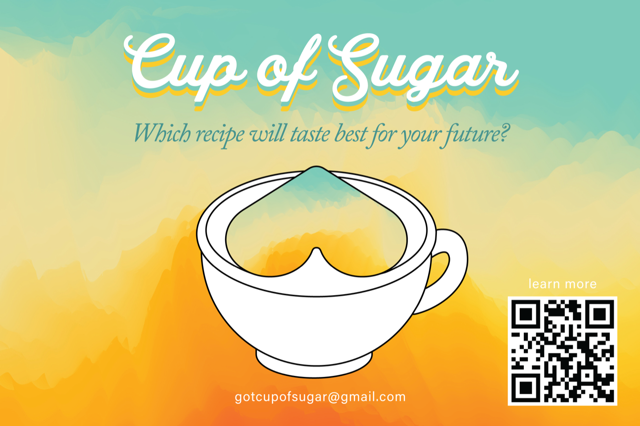NOTICING Obstacles
WANTED: New recipes for democratic activism
So I’ve calmed down. One month post election I still can’t toss out the Harris/Walz yard sign. The electorates’ Want and Need for a level playing field protected by the Constitution and rule of law won’t go away as an unrestrained President-elect sprints in the opposite direction. His next whatevers are an onslaught of Looney Tunes. If only it were funny. One tweet describes these times, activating a word from a long, deep, sleep of 380 years. Kakistocracy. (Go ahead, I dare you to say it. ka·kuh·staa·kruh·see). Merriam-Webster’s definition is, “Government by the worst people.”
Preceding the about-to-take-place parody of oath-taking on January 20th, the Cabinet announcements are a cartoon loop on repeat. They also resonate with fictional Tessie Hutchinson’s lucky draw. We meet Tessie in The Lottery, a story by Shirley Jackson published by the New Yorker magazine in 1946. Tessie’s village has a long tradition that she herself has taken part in her entire life. Her husband, their children, Bill, Jr., and Nancy, and little Dave, have all met up with friends and neighbors eager to see who will win the lottery. They are prepared for this occasion. They’ve stockpiled stones. The purpose? To strike the winner dead. And they do. Who won? Tessie won.
The US election is our lottery. But unlike Tessie’s village, our traditions reverse the win: it gives the President-elect the powers to make the friends and neighbors the target, instead of himself. The stones the President-elect will use are the items listed in Project 2025. This season’s winner intends to rewrite the village rules.
I’ve been in deep-low and quiet since November 5. Much data has been collected to explain the election’s results. But it seems insufficient. Why would voters vote against themselves in the face of clear and present danger? Why vote against clean air? Who doesn’t want the stability of knowing what comes next? The last eight years have profoundly unsettled practically everyone’s sense of well-being.
What is the obstacle here? Could it be a quality as essential as empathy? Empathy is the sense of being seen, understood and connected. It is as vital as breath is to life.
When I asked that question it was then I suddenly realized that my life’s work has come together to form one question: What if we rooted and developed democratic activism based on empathy?
I am now an instructor in Roots of Empathy, a program founded in 1996. It’s curriculum is taught in public elementary school classrooms in 14 countries. My role is to guide young children to observe the development and temperament of a baby, whom we recognize as our Tiny Teacher.
Beginning at three-months-old, and over the course of nine months as the baby grows, the students begin to embody emotional literacy. The words describing feelings from mad to frustrated, and sad to glad, are words that signal the ability to identify, understand, and express one's emotions. As children learn how to describe their emotions, trust in themselves and others grows strong, and empathy happens.
Independent studies of Roots of Empathy show students from kindergarten to grade eight increase their ability to share, to help, and to include. They show a decrease in aggressive behaviors, including bullying. Unlike forgetting, say, the names of state capitals, the ability to understand and share the feelings of another sticks with Roots of Empathy students.
The program’s intention is that children carry forward their empathic connections to their family and friends, and onwards within themselves as citizens. Can you see it? Child by child a brave and bright human develops. that nourishes A civil society is nourished and adaptable.
For an infant as well as children and, as it turns out, for grown-ups too, the obstacles to feeling safe and secure dissolve when one is seen and soothed. In the classroom this sense of trust is fundamental to learning. In a country where everyone is sheltered by the Constitution and the rule of law, this sense of trust is fundamental to democracy.
In thinking about empathy, one surprise surfaced. As far back as prehistory there is evidence that many non authoritarian civilizations existed with diverse forms of governance and social organization. In The Dawn of Everything, A New History of Humanity, David Graeber and David Wengrow suggest that perhaps our original political freedom is the freedom to erect and dismantle hierarchies at will.
My experience suggests that it would not be a one hundred percent bad thing to include empathy in democratic activism After all, half the country voted for a kakistocracy. Empathic people don’t throw stones at each other.
So. I am on a search for ingredients to create new recipes for democratic activism. The goal is to help get us out of this bitter horror of losing because of the winning.
What do you think democratic activism needs?
What do you think a Win for All would look and taste like?
_________________
Notes:
Shirley Jackson, The Lottery https://digitalbell-bucket.s3.amazonaws.com/58AF5E74-5056-907D-8DE8-C3BE81B60EA3.pdf
https://votersoftomorrow.org/gen-zs-guide-to-project-2025/
David Graeber and David Wengrow, The Dawn of Everything, A New History of Humanity (Farrar, Strauss and Giroux 2021)

